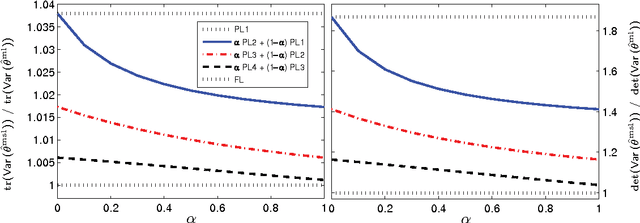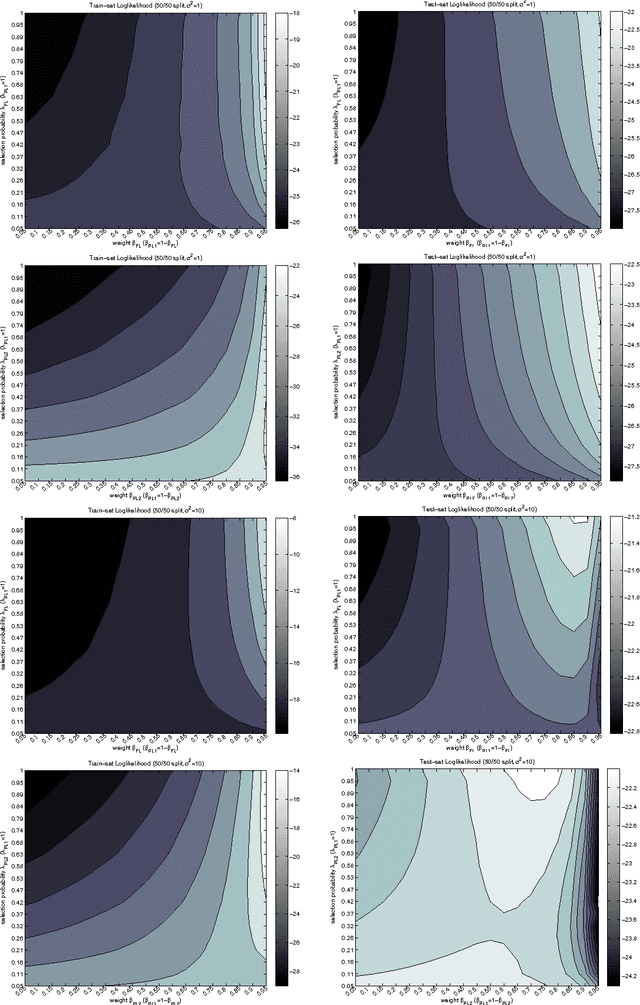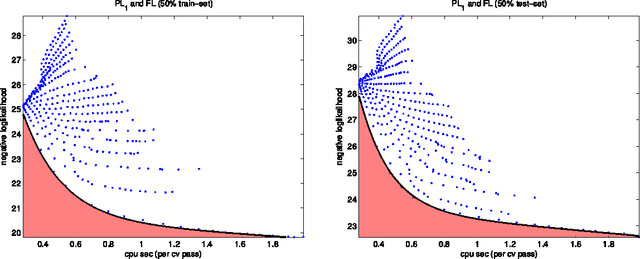Statistical and Computational Tradeoffs in Stochastic Composite Likelihood
Paper and Code
Mar 02, 2010


Maximum likelihood estimators are often of limited practical use due to the intensive computation they require. We propose a family of alternative estimators that maximize a stochastic variation of the composite likelihood function. Each of the estimators resolve the computation-accuracy tradeoff differently, and taken together they span a continuous spectrum of computation-accuracy tradeoff resolutions. We prove the consistency of the estimators, provide formulas for their asymptotic variance, statistical robustness, and computational complexity. We discuss experimental results in the context of Boltzmann machines and conditional random fields. The theoretical and experimental studies demonstrate the effectiveness of the estimators when the computational resources are insufficient. They also demonstrate that in some cases reduced computational complexity is associated with robustness thereby increasing statistical accuracy.
 Add to Chrome
Add to Chrome Add to Firefox
Add to Firefox Add to Edge
Add to Edge